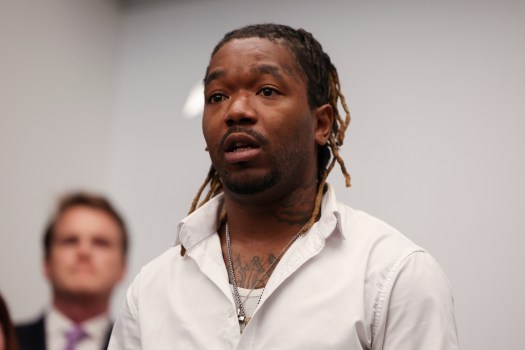@ChicagoTribune
In Chicago, Illinois, a disturbing pattern of "intimate non-personal" abuse has emerged, shedding light on a form of mistreatment that transcends traditional definitions of abuse. This term refers to situations where individuals are subjected to harm within relationships that are intimate in nature but lack genuine personal connection or regard. Such relationships often involve power imbalances and systemic structures that compel individuals to engage in close proximity, making them vulnerable to exploitation and abuse.
Understanding "Intimate Non-Personal" Abuse
"Intimate non-personal" abuse occurs in relationships where individuals are compelled to engage due to systemic structures, such as housing, employment, or healthcare, rather than personal choice. These relationships are characterized by power imbalances and vulnerabilities that are exploited by perpetrators of abuse. In the context of Chicago's juvenile detention centers, this form of abuse has manifested in the systemic sexual abuse of minors by staff members—within the facility where the children lived and the staff worked.
The Chicago Juvenile Detention Center Scandal
A coalition of attorneys and survivors announced the filing of lawsuits in July 2024 on behalf of nearly 200 people who were allegedly sexually abused as children at the Cook County Juvenile Temporary Detention Center in Chicago. The lawsuits, filed by Bailey & Glasser LLP and Levy Konigsberg LLP, involve 37 female and 156 male survivors who claim they suffered sexual abuse while confined at the facility, formerly known as the Arthur J. Audy Home. The alleged abuse occurred between 1995 and 2022, when the victims were between the ages of 9 and 17. The accused perpetrators include male and female staff members of the detention center.
These allegations are part of a broader pattern of abuse across Illinois' juvenile detention system. Since May 2024, over 800 lawsuits have been filed, detailing experiences of sexual abuse at state-operated Illinois Youth Centers and the Cook County Juvenile Temporary Detention Center between 1996 and 2021. The lawsuits name dozens of staff members—both men and women—with some being named by multiple survivors. Many survivors were under 16 years old at the time of the alleged abuse.
Systemic Failures and Legal Challenges
One of the most troubling aspects of this case is the difficulty in prosecuting "intimate non-personal" abuse under existing legal statutes. While Illinois law provides definitions and protections against domestic abuse, including intentional infliction of physical pain or injury, emotional and psychological abuse often falls into a gray area that is not adequately addressed. This legal gap leaves victims vulnerable and without sufficient recourse.
The lawsuits allege that the state failed to supervise, discipline, remove, or investigate alleged abusers, enabling the abuse to continue. Many plaintiffs allege their abusers threatened them with beatings, transfers to tougher facilities, and longer sentences if they reported the abuse. Others were given rewards like food, cigarettes, or the chance to play video games if they kept quiet. These tactics reflect a systemic failure to protect vulnerable individuals within the juvenile detention system.
The Need for Legal Reform
The Chicago case underscores the urgent need for legal reform to address the complexities of "intimate non-personal" abuse. Advocates argue for the inclusion of emotional and psychological abuse within the legal definitions of domestic abuse, ensuring that all forms of mistreatment are recognized and prosecuted.
Furthermore, there is a call for increased training for law enforcement and legal professionals to recognize and respond to the subtle signs of this form of abuse. Victims often do not present with physical injuries, making it challenging for authorities to identify and intervene effectively.
Conclusion
The case of "intimate non-personal" abuse in Chicago serves as a poignant reminder of the evolving nature of abuse and the necessity for legal systems to adapt accordingly. As society becomes more aware of the various forms of mistreatment that can occur within intimate relationships, it is imperative that laws evolve to provide comprehensive protection for all victims, regardless of the form the abuse takes.
Addressing the challenges posed by "intimate non-personal" abuse requires a multifaceted approach, including legal reform, education, and support for victims. Only through such comprehensive efforts can we hope to combat this insidious form of abuse and ensure that all individuals can live free from fear and manipulation.
Additional source: WTTW News
Suggested Reading
The Case of "Intimate Non-Personal" Abuse In Milwaukee, Wisconsin


Post a Comment
Post a Comment